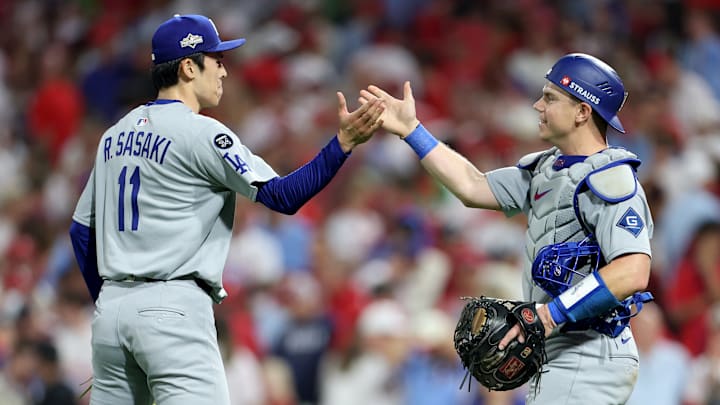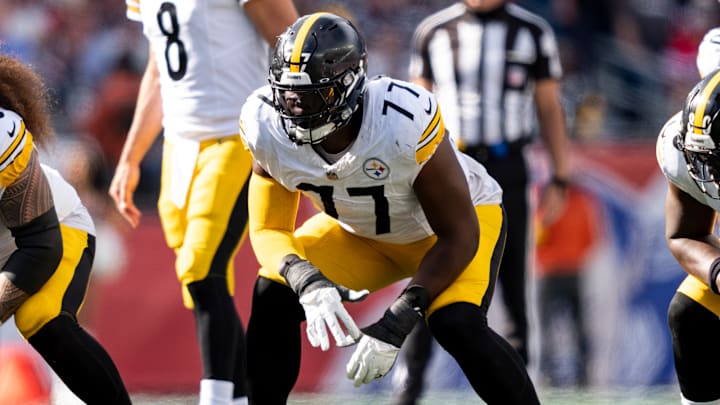Amy Trask called out Raiders' Chip Kelly for how he's handled Ashton Jeanty
The Las Vegas Raiders began the 2025 NFL season with one of the worst rushing attacks in the entire NFL. While they have looked much better in the last two weeks and are trending in the right direction, they still rank 20th in rushing yards per game and 17th in yards per carry.
Three changes have occurred in the last two weeks, and it's possible that they are all responsible for the uptick in production: Raheem Mostert being activated for the first time this season, Jackson Powers-Johnson returning from injury, and Ashton Jeanty reverting to his college pre-snap stance.
It is difficult to know just how much each contributed to the improvement in running the ball; however, there has been a noticeable difference. Former legendary Raiders CEO Amy Trask recently called out offensive coordinator Chip Kelly for tinkering with Jeanty's stance in the first place.
Former Raiders CEO calls out Chip Kelly over Ashton Jeanty's stance
Jeanty proved to be one of the best running backs in NCAA history during his stint with the Boise State Broncos. The 2024 Heisman Trophy runner-up performed at such a high level that the Raiders selected him sixth overall, making him the highest-draft running back since Saquon Barkley in 2018.
Kelly reportedly made an immediate change to his stance, however, which Trask called out while speaking with CBS Sports' Hailey Sutton.
"You drafted Ashton Jeanty with the sixth pick in the draft. He's a spectacular running back, and yet the first thing Chip Kelly did was say, 'I want to change your stance. I don't want you lining up and standing. I don't want your stance the same as the way it was in college,'" Trask said. "Well, wait a minute, he was phenomenal in college. That's why you drafted him. And, now, you're going to tell him to change his stance? Well, guess what? Ashton changed his stance back. I love that Pete (Carroll) said that he loved that Ashton reverted to his college stance, and he's gotten better since it. So, I don't know what the heck Chip Kelly was thinking, but why would you draft someone who is so good at what he does and then immediately tell him to change what he does?"
Trask's frustration is certainly understandable, and her voice is widely respected in Raider Nation. But it should be noted that Kelly vehemently denied changing Jeanty's stance, as those decisions are apparently made by position coaches. This places the supposed blame on Deland McCullough
After changing his stance back, however, Jeanty is a new man. In the first three games of the season with his new stance, Jeanty averaged just 48.0 rushing yards per game, 3.1 yards per carry, 49.0 yards from scrimmage per game and 2.8 yards per touch.
Over the past two weeks, returning to his iconic stance from college, those numbers have skyrocketed to 102.5 rushing yards per game, 5.9 yards per carry, 132.0 yards from scrimmage per game and 6.3 yards per touch.
The Raiders' rushing attack has also seen a tremendous turnaround. After averaging 72.3 rushing yards per game and 3.1 yards per carry over the first three weeks, the unit has averaged 173.0 rushing yards per game and 6.2 yards per carry over the past two games.
It is clear that the original plan of changing Jeanty's stance did not benefit him or the team. The rookie has begun to look like the player Las Vegas thought they were getting after reverting to his college stance, and Trask is rightfully still upset that it took this long to figure out.
Phillies had no answer as Dodgers managed their biggest weakness perfectly

The Philadelphia Phillies had a path to win the National League Division Series before it began. The Los Angeles Dodgers came in as the defending World Series champions, but they had holes in their roster as much as anyone else. They had a leaky bullpen going into the playoffs, but you wouldn't know it with how well the Dodgers managed their bullpen throughout the four games.

The Dodgers' bullpen was the part of the roster the Phillies' offense had to get to in order to succeed. As long as the Phillies could hang in against the Dodgers' starting pitching, they'd have a chance in the later innings. The Dodgers made adjustments with a shortened playoff series and outlasted the Phillies to win the series.
Dodgers managed their bullpen to perfection in NLDS to shut down Phillies
The top of the lineup had to apply pressure for the Phillies to have a chance in the series, but they instead made the eight runs they scored in Game 3 look more like a fluke. In Game 4, the top three hitters of Trea Turner, Kyle Schwarber and Bryce Harper sang a familiar tune, going a combined 1-for-14. As a team, they only scratched across four hits total. The Dodgers' bullpen came out on top in the end.
In the regular season, the Dodgers' bullpen ranked 21st with a bullpen ERA of 4.27. Ironically enough, they finished tied with the Phillies. They also had a 10.38 ERA over the two Wild Card games against a Cincinnati Reds offense that didn't impose any substantial threat. The Dodgers learned from that and approached things differently once they played the Phillies.
The Dodgers barely used traditional relievers for the entire four-game NLDS. They leaned heavily on extra starters to get the job done, and unfortunately, it worked to perfection. The one thing that few teams in MLB can go toe-to-toe with the Dodgers on is the depth of their starting rotation.
Roki Sasaki, a rookie who sported a 4.46 ERA across 10 games (eight starts) this season, was moved to the bullpen for the playoffs. He proceeded to throw 4 1/3 shutout innings against the Phillies, including three perfect innings in the clinching Game 4.
The Dodgers also deployed Tyler Glasnow and Emmet Sheehan out of the bullpen, limiting any threat the Phillies thought they could muster late in games. The only real success the Phillies had against the Dodgers' bullpen was facing 37-year-old Clayton Kershaw when he was hung out to dry in Game 3 and against Blake Treinen, who they scored twice against in Game 2 but ultimately fell one run short of a comeback.
The beauty and agony of a short playoff series is that every moment is amplified. Every game means more, and as a result, teams manipulate their pitching staffs to minimize any weakness. The Dodgers did it well and showed the Phillies the door in another early playoff exit.




